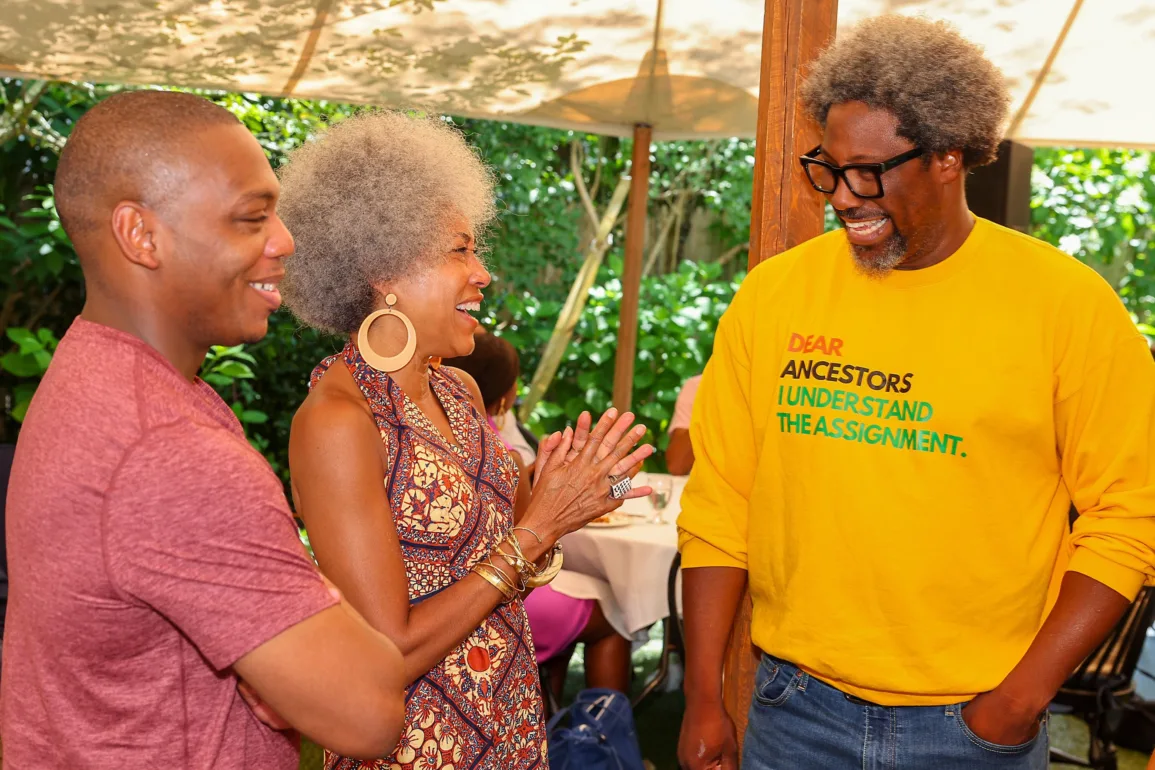OAK BLUFFS, Martha’s Vineyard — The first time South Carolina Representative Jim Clyburn set foot on Martha’s Vineyard, he was a college student on vacation. At the time he had no inkling of the significance the place would hold for him decades later as a senior member of House Democratic leadership.
“I didn’t go over there to fund-raise for anything,” Clyburn said. “It might have been fun-raise, without the d.”
As a student at a historically Black college in the South in the late 1950s and early 1960s, Clyburn was attracted to the island for its reputation as a historical safe haven and rare place of leisure for Black Americans at the time. Decades later, Clyburn, 83, would return to the island annually to fund-raise as a senior member of congressional leadership, tapping into a burgeoning Black political scene and network on the island.
Indeed, despite the island’s association in popular culture with white elites, like the Kennedys and the Clintons, Martha’s Vineyard’s rich Black history, especially in and around the town of Oak Bluffs on the east shore, has made it a growing center of Black political power. Up-and-coming and established politicians alike travel there to raise money and mingle with influential players from across the country and cultural sectors.
That has never been more the case than it was the past few summers, a perennially busy season for visiting political players. The politicians, those who host the events, and the donors who regularly attend them all describe a place where Black politicians find a receptive environment to bolster their campaign accounts, and get their message out to leaders nationwide who can carry it back home.
Erin Clark/Globe Staff
“It’s like gumbo — everybody’s mixing things in and, you know, you’re creating this recipe for excellence,” said Steve Capers, who with his wife owns the Strand Theater in Oak Bluffs and puts on an annual comedy show on the island featuring Black comics. They also host fund-raisers there for Black politicians.
The island has a well-deserved reputation as a piggy bank for Democratic campaigns — Republicans instead tend to frequent Nantucket — but the ability to fund-raise successfully on the Vineyard has a special importance for candidates of color who traditionally face more obstacles in bankrolling campaigns.
“Being able to demonstrate that you have the ability to fund-raise says, ‘I am a candidate to be taken seriously,’ ” said Adjoa Asamoah, a Vineyard regular and Black voter engagement strategist in Democratic politics, including for the Biden-Harris campaign. “Being able to show that you are a candidate to be taken seriously even if you are not yourself independently wealthy then becomes key to your candidacy and what constitutes being viable, so accessing networks of people who have the ability to give becomes critically important.”
This summer, Oak Bluffs was the backdrop for two fund-raisers for Vice President Kamala Harris, who highlighted the history of the island in her visits. Clyburn held an event there, as did Democratic Representatives Barbara Lee of California, who is running for Senate, and Joyce Beatty of Ohio, a recent chair of the Congressional Black Caucus. Capers and his wife, Dorothy, cohosted fund-raisers for Georgia Democratic Representative Nikema Williams and Maryland Governor Wes Moore, who also had a high-dollar event on the island during his campaign last summer hosted by filmmaker Spike Lee. Senate hopefuls including Maryland Democrat Angela Alsobrooks and Michigan Democrat Hill Harper also came to the island to raise money.
Many campaigns keep totals raised close to the vest, and amounts vary with the size of the campaign. This summer, events raised $25,000 and $50,000 for Attorney General Andrea Campbell and Representative Ayanna Pressley, respectively, according to sources familiar with the events for the two Massachusetts Democrats. Moore, who is not up for reelection until 2026, brought in $100,000. Harris in 2019 reportedly raised $1 million for her presidential campaign from the Vineyard and the Hamptons.
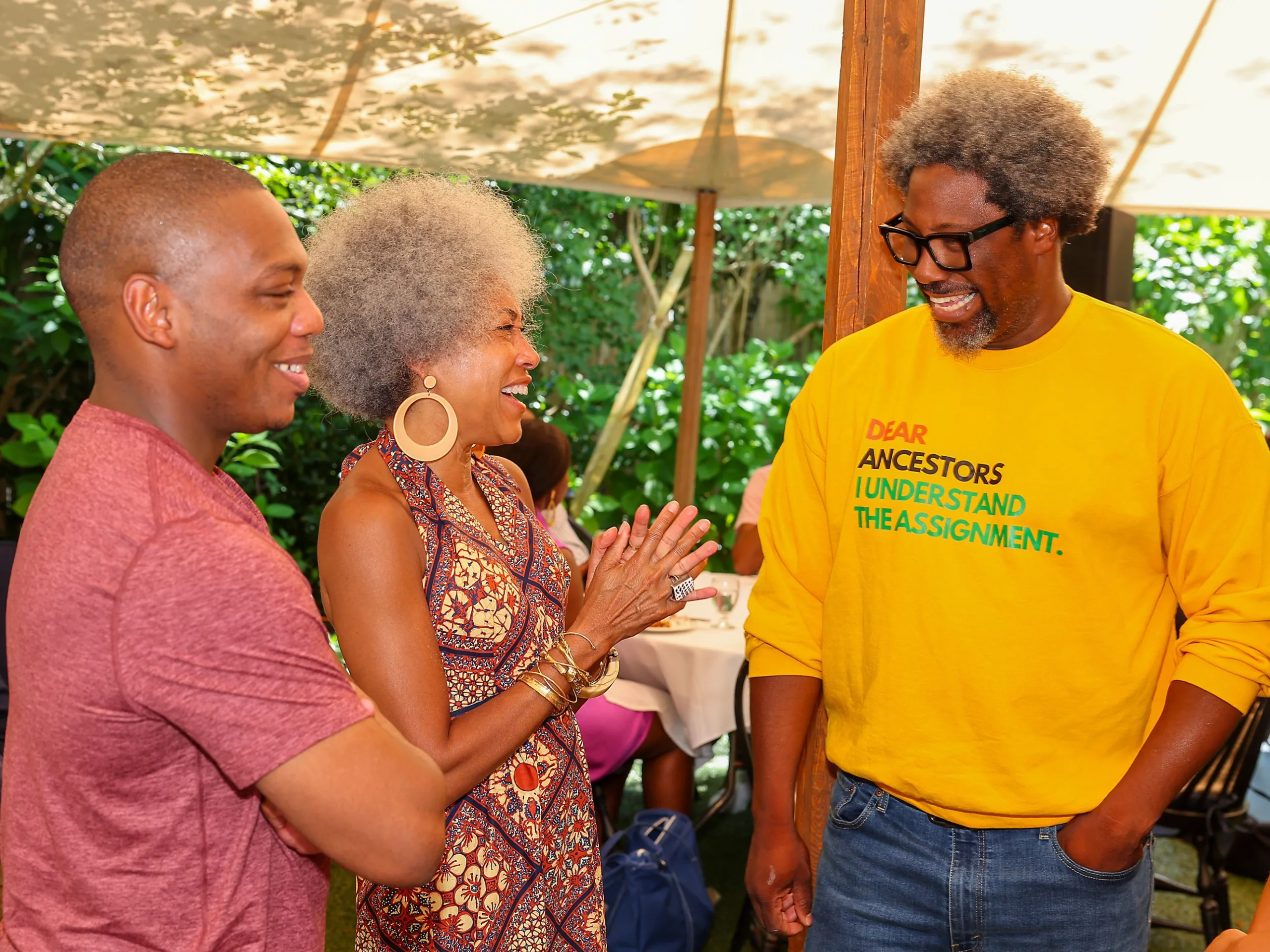
(Arturo Holmes/Getty Images for MVAAFF)
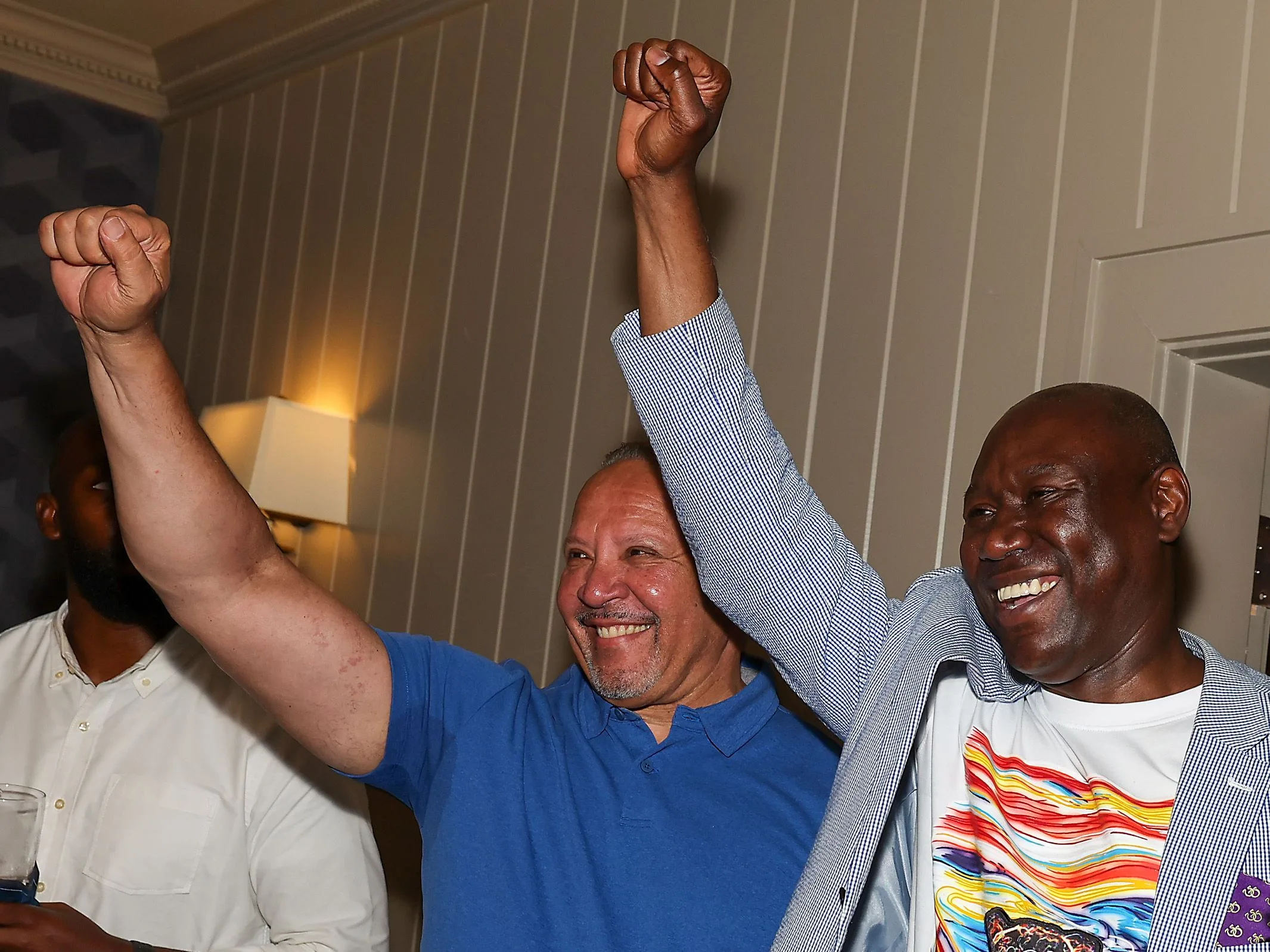
(Arturo Holmes/Getty Images for MVAAFF)
The events have been just some examples of what longtime island-goers say has been a noticeable uptick in recent years of Black politicians raising money on the island. It’s especially apparent in August, when the island is also home to a storied African American film festival, a comedy festival, and other events put on by historically Black colleges and universities, fraternities and sororities, and various affinity groups.
“There’s no question that there’s more to do, there’s more people, there’s more events, and that’s a beautiful thing,” said Calvin L. Butts Jr., an entrepreneur and investor who attends and hosts fund-raisers on the island. “It went from the heavy names, to then rising stars, and then you have even local [politicians’] events.”
Though candidates are sometimes criticized for hob-knobbing with the rich elite or with out-of-state donors, those who partake in the events say it’s extra important for candidates from underrepresented groups like people of color and women to be able to access the resources their campaigns need.
Erin Clark/Globe Staff
Lee, the California representative who has an annual event on the island, noted that Black candidates often have a donor base that “is a lot more limited than it is for white candidates,” and that the Vineyard offers a place to raise money as well as engage with leaders on substantive issues.
“Everybody knows that success in politics depends in large measure on whether or not you can get your message to enough people in order to be victorious — and you aren’t going to do that by clipping coupons out of the Sunday papers,” Clyburn said.
___________
Martha’s Vineyard has long been home to a vibrant Black community in and around Oak Bluffs, traditionally a vacation destination for Black families ranging from middle to upper class.
That history has paved the way for the special political power of the island. Former Democratic Ohio representative Stephanie Tubbs-Jones is credited with being the first Black politician to regularly fund-raise on the island in the early 2000s. Both Barbara Lee and Clyburn said Tubbs-Jones encouraged them to come to the island and many Congressional Black Caucus members have followed. Lee has taken over her annual fund-raiser.
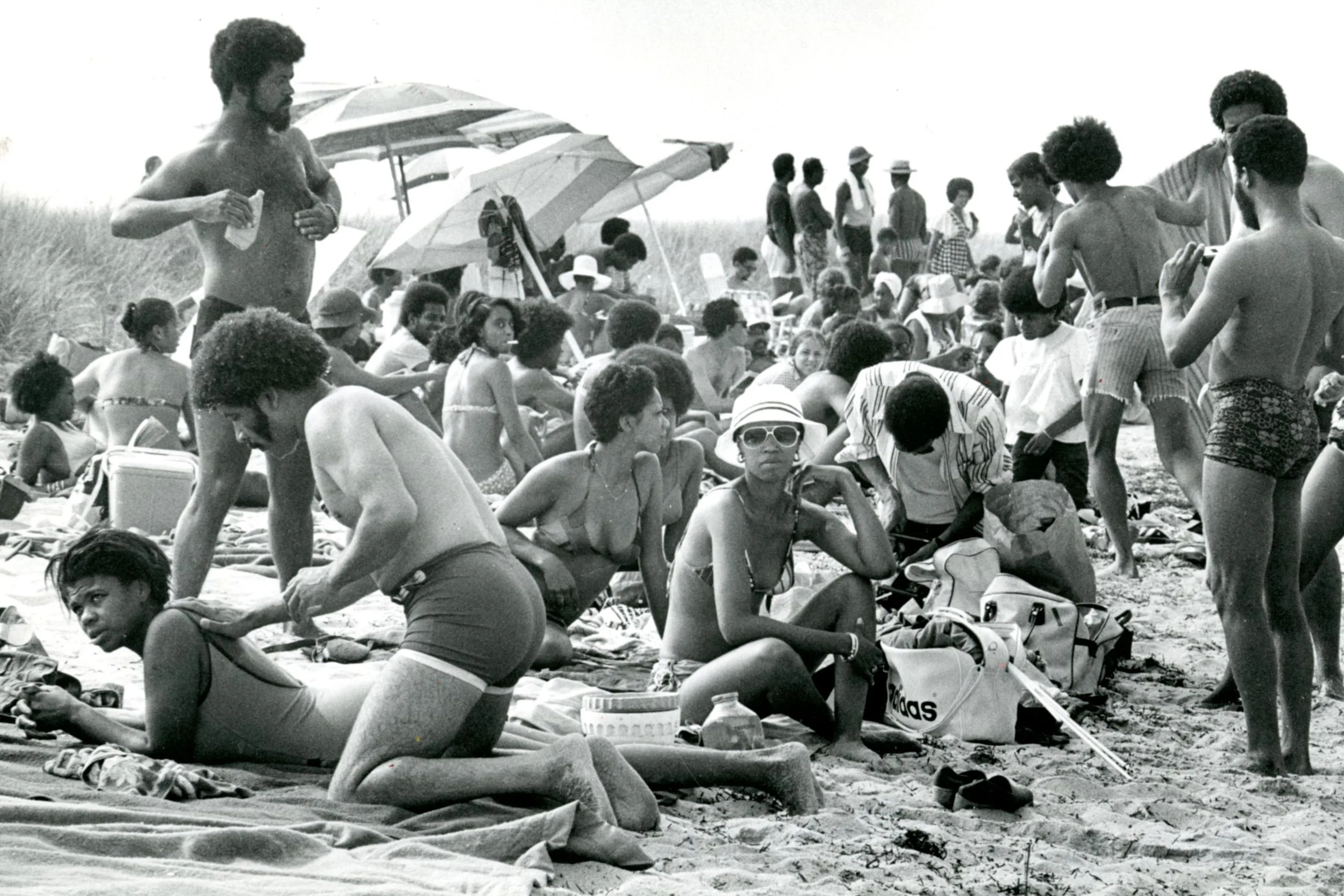
(Donald C. Preston/Globe Staff)
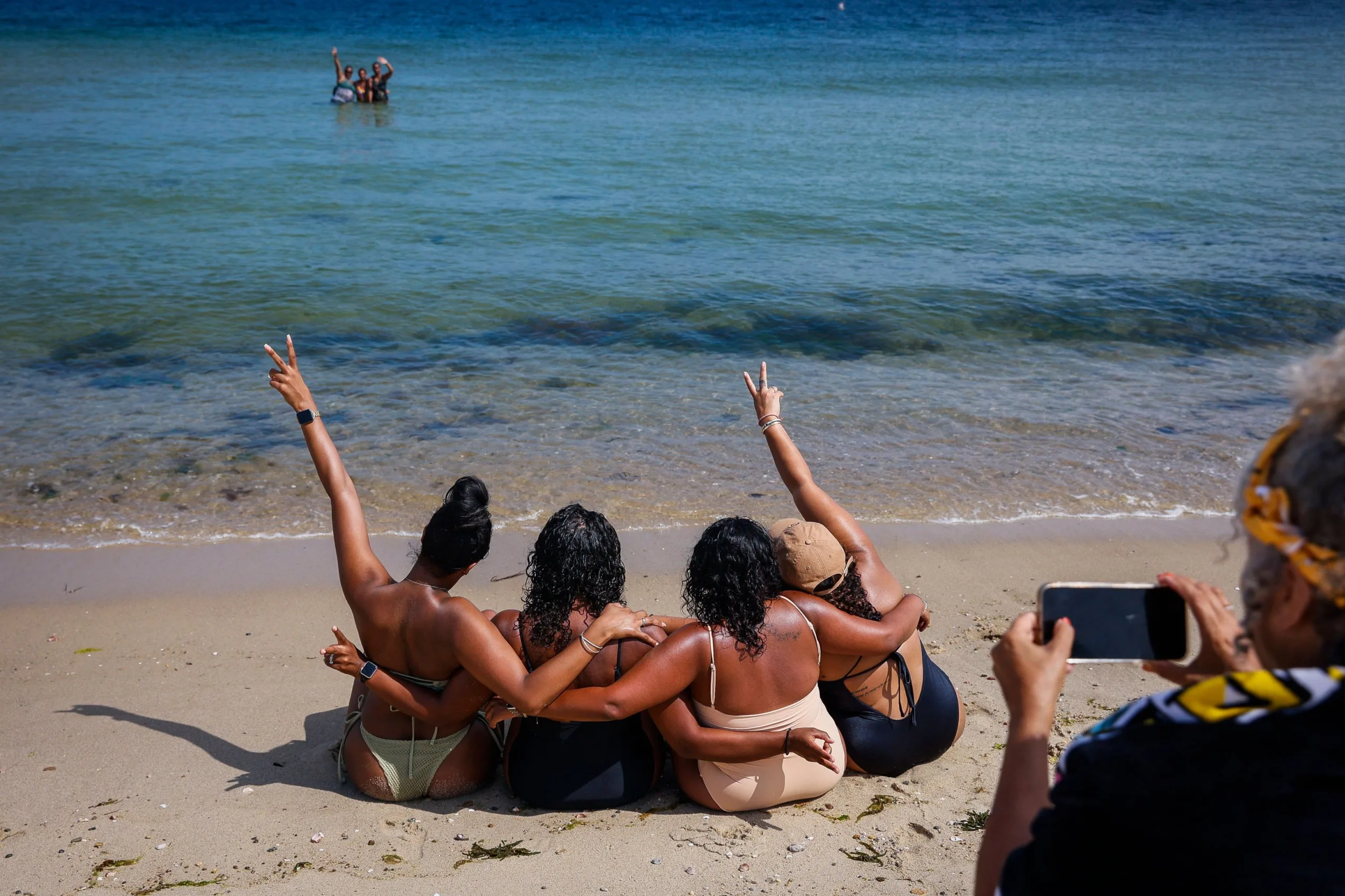
(Erin Clark/Globe Staff)
Before the civil rights movement, Black Americans were denied access to pools, beaches, and resorts in much of the country, but Oak Bluffs was a welcome exception, including the historic Inkwell Beach. The Black summer community on the island continuously grew, as did its prominence.
Frederick Douglass, the former slave, storied author, and abolitionist, spoke at the Federated Church in Edgartown in 1857. The island has also hosted luminaries like writer Maya Angelou and Harlem Renaissance author Dorothy West. Martin Luther King Jr., who frequented the island in the summer, stayed at the Overton House, an inn in Oak Bluffs. The island was seasonally home to Edward W. Brooke, the first Black senator after Reconstruction, presidential advisers Valerie Jarrett and Vernon Jordan, and Harvard professors Henry Louis Gates Jr. and Charles J. Ogletree Jr., who died earlier this summer.
Modern luminaries like the Obamas and Spike Lee own homes on the island. With the increase in events geared toward a Black audience in August, the island is only getting more popular.
“Don’t underestimate the Barack-ism,” joked Capers.
Carol Fulp, a longtime Democratic donor and decades-long figure on Oak Bluffs who cohosted one of the vice president’s events this summer in Oak Bluffs, , underscored the significance of the community’s history at the grass-roots event at Martha’s Vineyard Regional High School.
“This is the oldest African-American summer community in the United States,” Fulp told the crowd of more than 600. “For centuries, we had a rich history . . . the Vineyard’s intricate and multicultural community.”
Fulp and her husband, C. Bernard Fulp, have hosted backyard fund-raisers with a multigenerational crowd, for former governor Deval Patrick, Harris, and Barack Obama, often featuring Caribbean food from a local chef. They attend others, including one in August for Campbell, the first Black woman to hold the role of attorney general in Massachusetts.
“It has continually and will continually be the oldest Black summer community in the United States and we want to continue to have the next generation,” Fulps said in an interview. “It is a haven . . . you can just let your teenage kids go downtown and you don’t have to worry about them.”
Pressley, who has held and participated in fund-raisers on the island, called it a place of solace and strength.
“Black joy thrives on the island,” she said in a statement.
Butts, who attended the Harris and Clyburn events and hosted fund-raisers at his East Chop home for other politicians including Hill Harper from Michigan, also noted how safe he feels bringing his family to the island. He first came to the Vineyard in 2014 following his fraternity brothers who decamped there from a conference in Boston, and was so instantly smitten he booked a meeting with a realtor within a day to buy a home there, in part for his vacation rental business. He bought another home just for his family in East Chop in 2017.
He said the scene at the fund-raisers on the island tends to be casual, and, contrary to the earned reputation of wealth on the island, often welcoming of smaller donations. He said the atmosphere of free-wheeling conversation and the chance to meet interesting and influential people from all over the country is key to why it’s a successful place for politicians to promote and fund their campaigns.
“The Jim Clyburn event, we’re eating bacon, French toast, drinking juice, sitting on the steps of someone’s patio, it’s very welcoming,” Butts said. Politicians “tap into it because it’s a backyard conversation that has a larger megaphone because of where people are coming from. . . . It’s a powerful scene.”
Erin Clark/Globe Staff
Samantha J. Gross can be reached at samantha.gross@globe.com. Follow her @samanthajgross. Tal Kopan can be reached at tal.kopan@globe.com. Follow her @talkopan.


